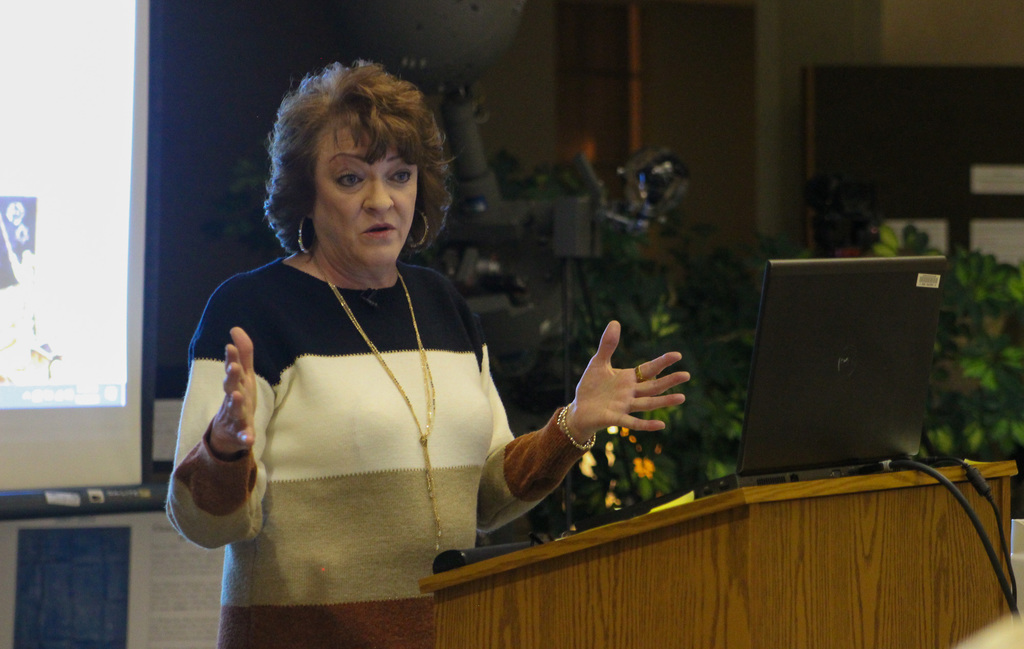Holocaust presentation concludes Graves Lecture Series

CHADRON – Chadron State College’s Fall 2021 Graves Lecture Series concluded with Mary Traphagan, a Chadron Middle School Social Sciences Teacher, Nov. 9, in the Mari Sandoz High Plains Heritage Center Chicoine Atrium. She presented a discussion on Holocaust history and honored Holocaust survivors.
Traphagan has been in education for more than 20 years and first became interested in the Holocaust as a middle school student. She said she believes in the importance of educating future generations so they can learn from the past. As a member of the Institute for Holocaust Education in Omaha, she provides educational resources and presents programs in the Panhandle.
She explained that between 1933 and 1945, the Nazi Party established more than 40,000 concentration camps, forced labor camps, prisoner-of-war camps, and killing centers. Traphagan went into detail about the conditions of the camps.
“The camps were enormous and had fences doubled with barbed wire, watchtowers with machine guns, and floodlights. Escape did happen, but it was rare. Housing barracks were designed to hold up to 700 prisoners, but the Nazis housed up to 1,200 people in each barrack. There were no windows, water, heat, and little food. As a result, many people died of disease, dehydration, starvation, and typhus,” Traphagan said.
Traphagan detailed how the indoctrination of people occurred.
“One of the things that Hitler created was the Hitler Youth Program. The youth program had four million members at its height, and everyone was required to join. Influencing people was another thing. The Nazi Party owned all newspapers and radio programs, making it easier to control and spread propaganda. People started to believe what they saw and heard because they were exposed to it time and time again,” Traphagan said.
Traphagan noted the desperate times that ensued and explained a lesser-known event that occurred during the Holocaust.
“Many people sent their children away using the Kindertransport. The Kindertransport was an organized rescue mission that allowed over 10,000 Jewish children to be sent to live in the foster care system. Each child was allowed one suitcase and a card with their name on it,” Traphagan said. “These children would not have known where they would live and didn’t know the culture or language. I can’t imagine the pain and suffering that caused them.”
Traphagan concluded her presentation by highlighting Holocaust survivor Lorene Nussbaum, a German-born American scholar, and writer. This past summer, Traphagan traveled to Seattle, Washington, and interviewed Nussbaum.
“Lorene is an incredible woman. She’s 94 years old, and you would never know it. Lorene goes around to schools and organizations to lecture for anyone who wants to listen,” Traphagan said. “Lorene’s claim to fame is that she knew Anne Frank while living in Frankfurt, Germany. Lorene saw Anne as a little sister and described her as funny and vivacious.”
Category: Campus Events, Campus News, Historical
